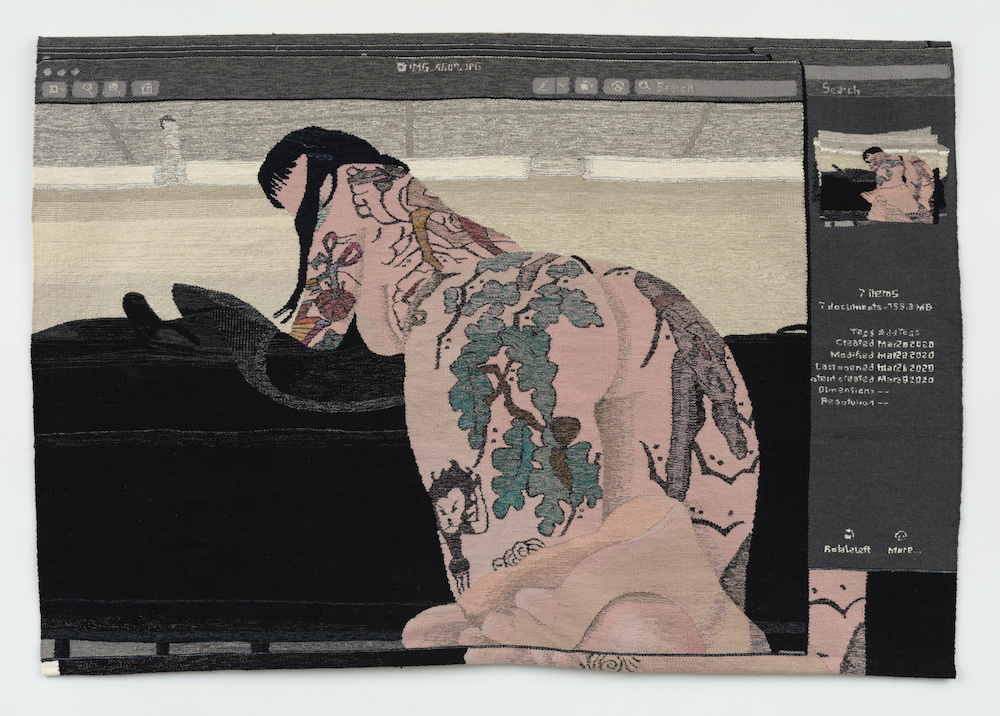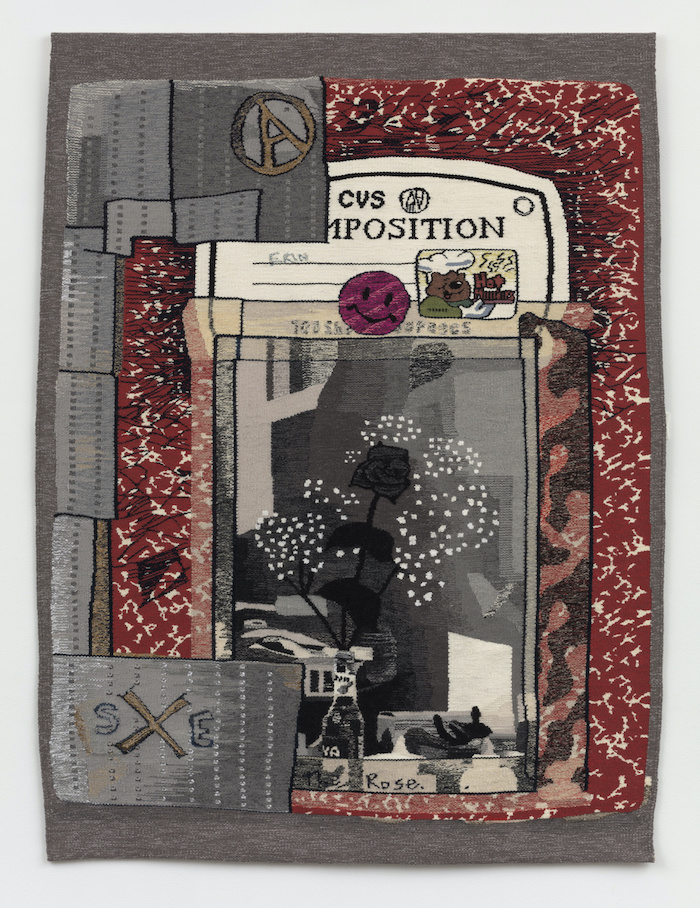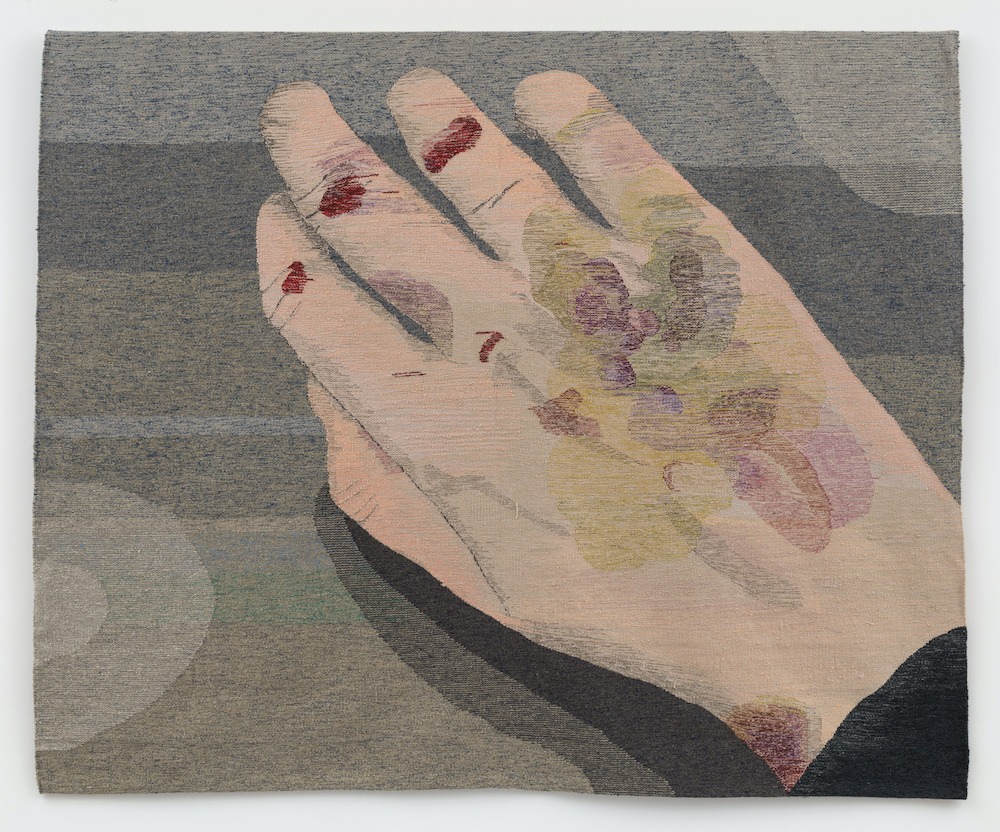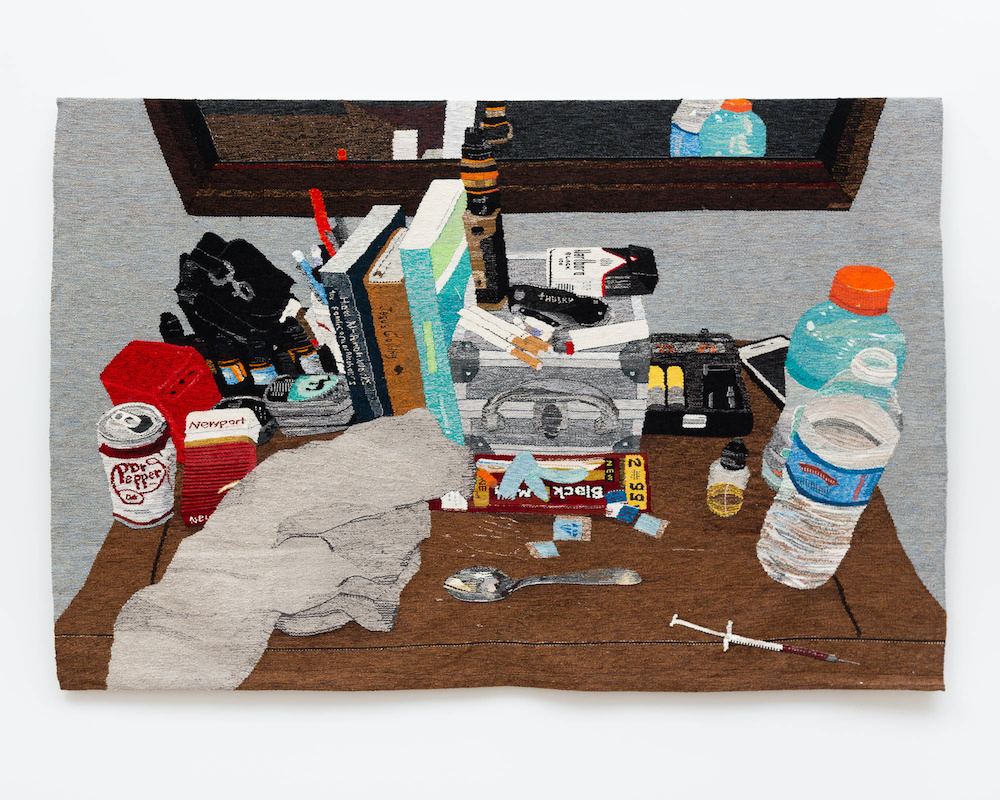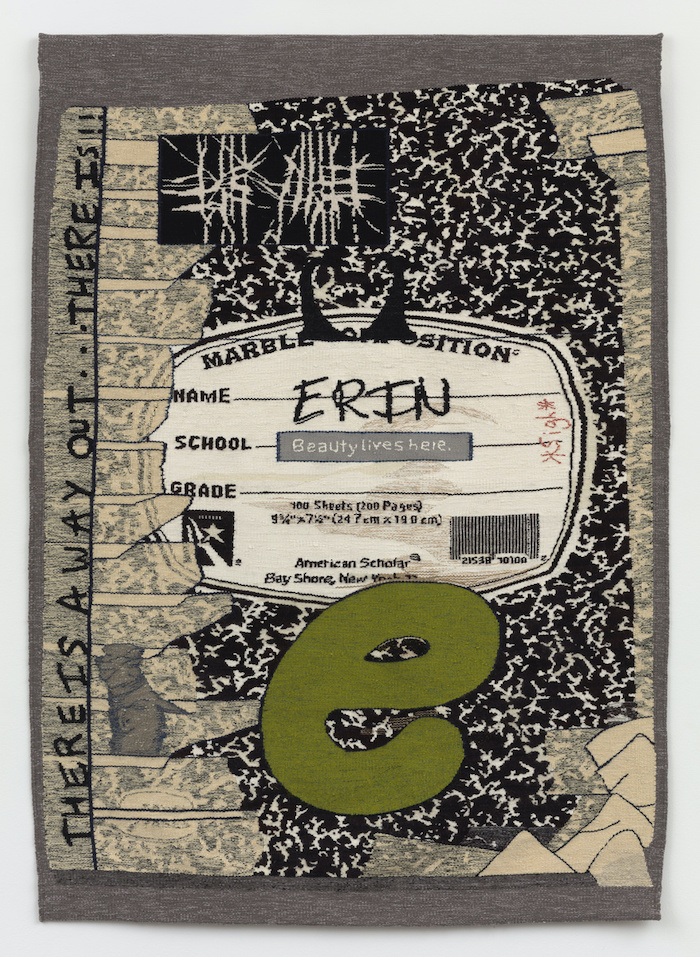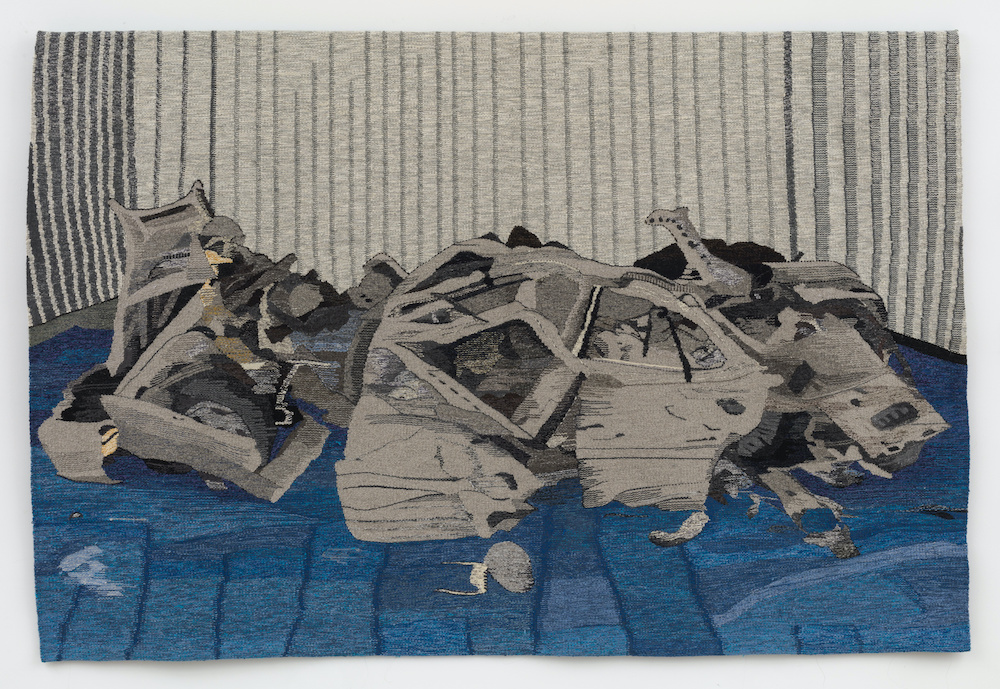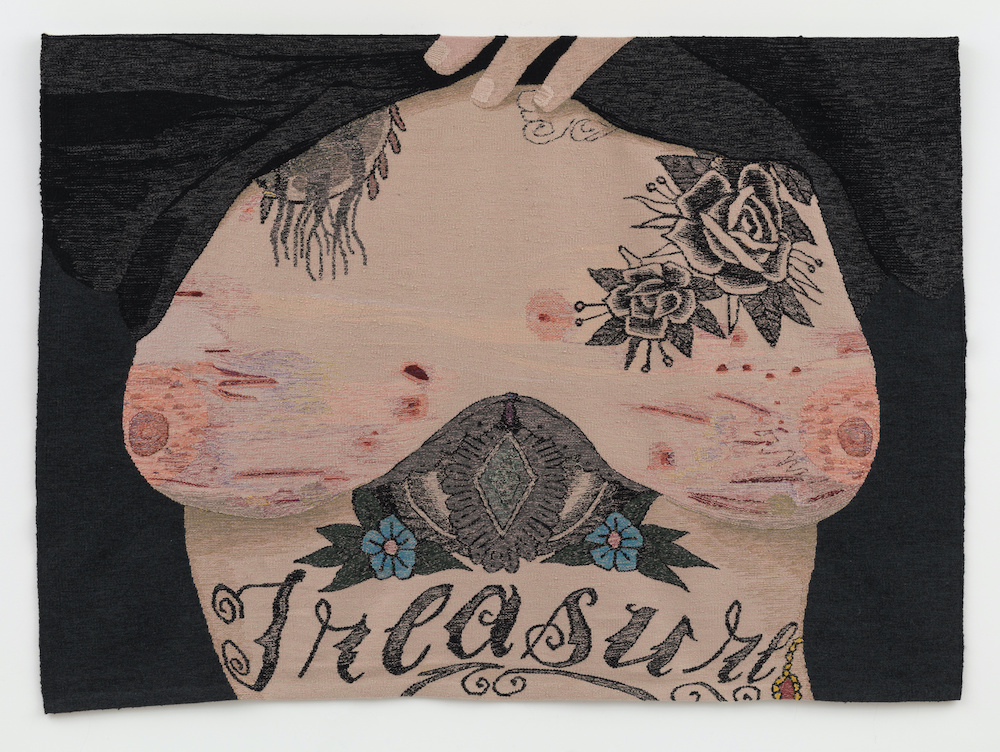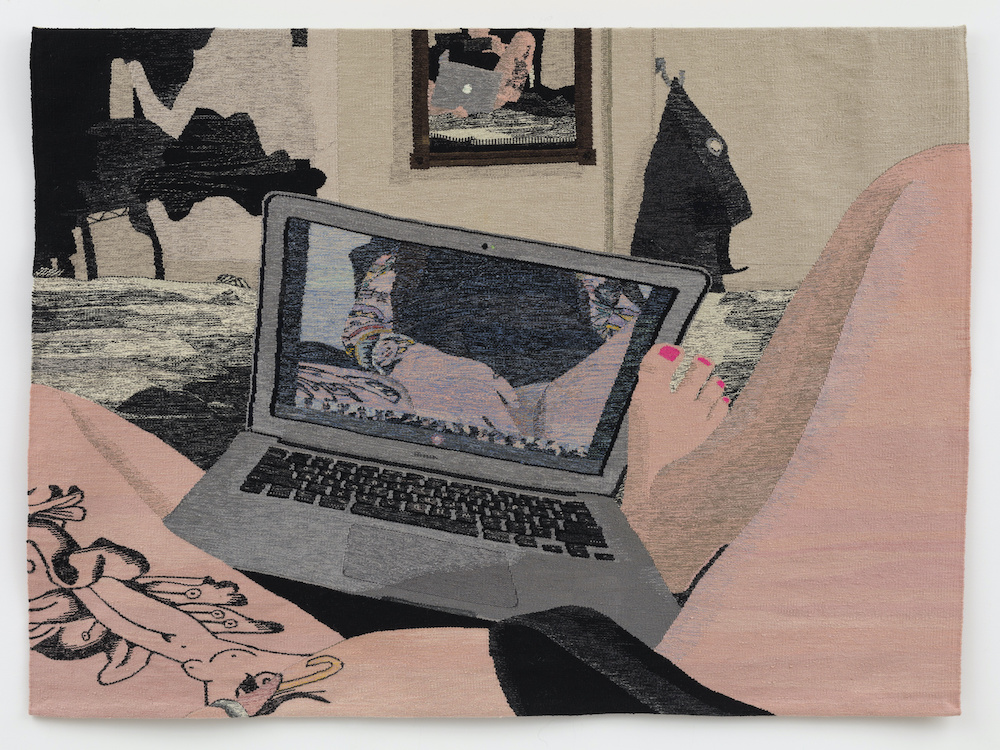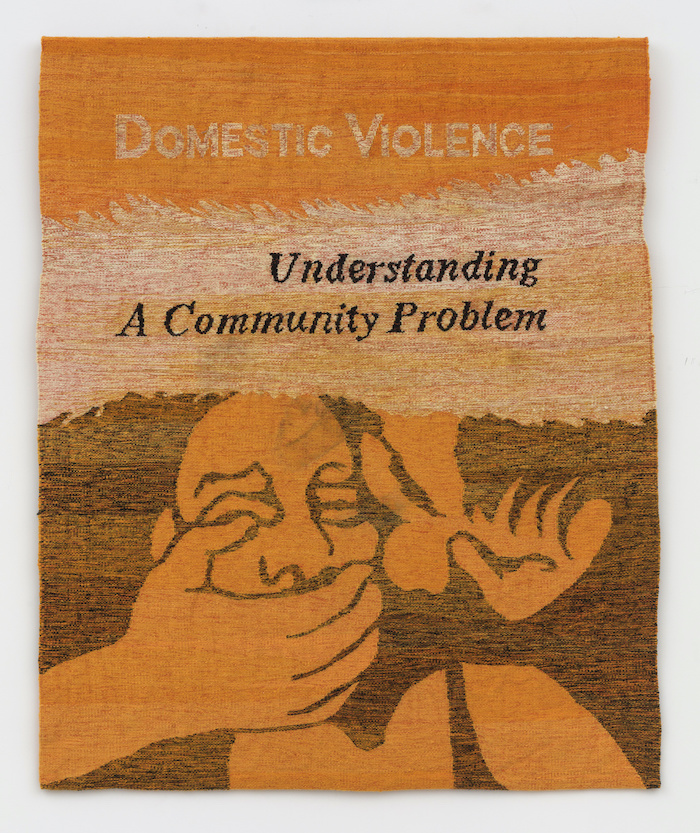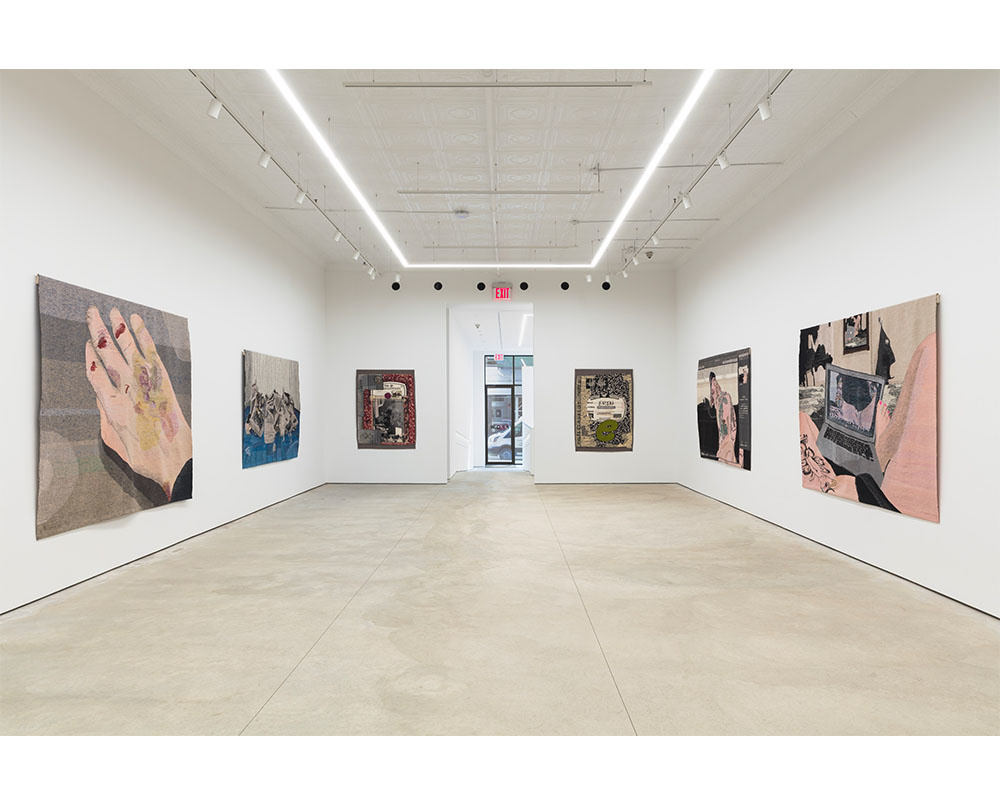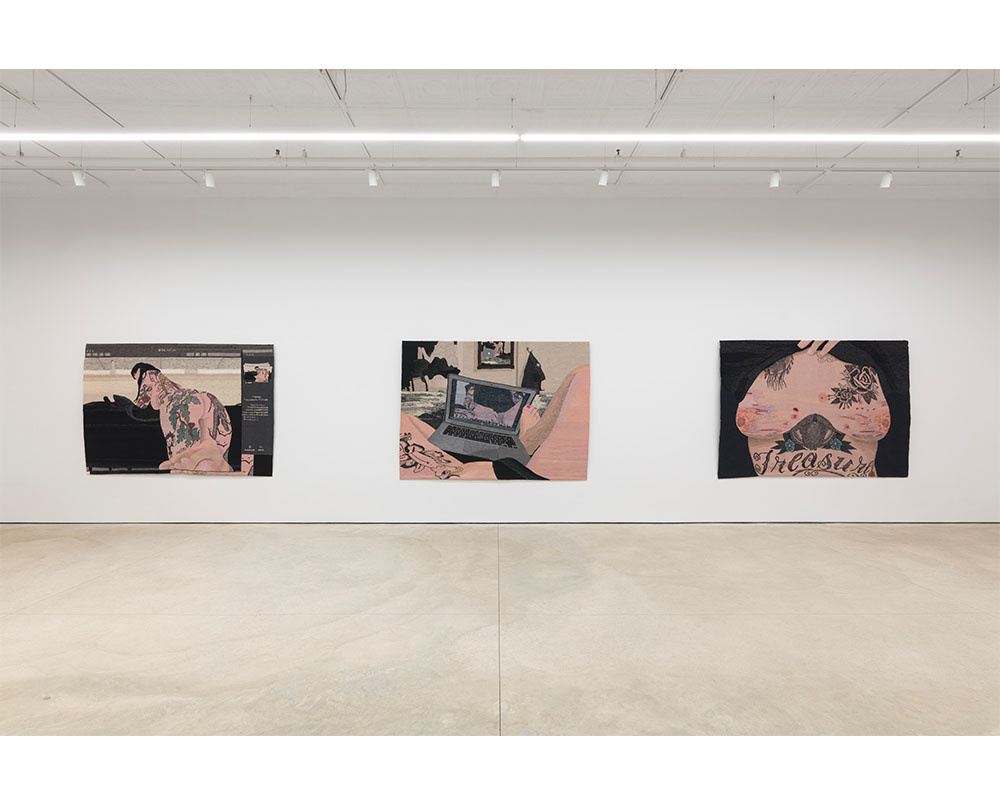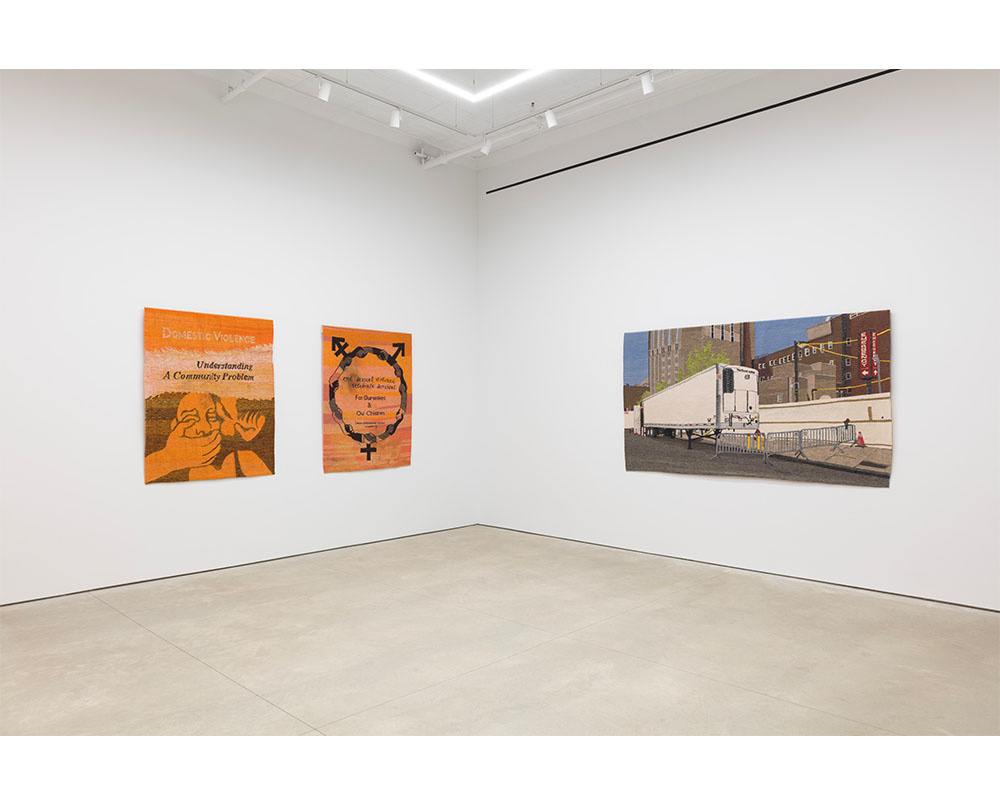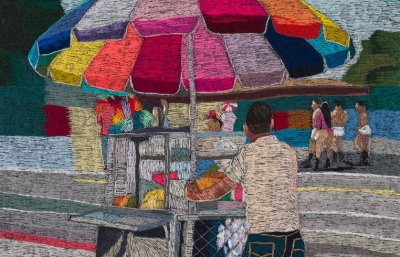“I’ve learned my dark places are cyclical like cicadas," Erin M. Riley wrote in conjunction with her new solo show at P.P.O.W in NYC, wonderfully titled, The Consensual Reality of Healing Fantasies. "Growing in the dirt to emerge every decade. I photograph the bad moments because they do eventually fade and weaving this seemed inevitable... At 35, I’ve been dealing with the fact that my favorite coping mechanisms just lead to more problems.”
Riley's process is one of discovery, as her textiles and weavings almost leave her blind to the end result until she takes the work of the loom. That in itself makes the work a bit of healing as well as revelatory. Why would I recreate this imagery? What are the details I remember and have saved? Why do I do these things? The works are often raw, bold, voyeuristic. Riley hints at a world where there is no privacy, or where intimate thoughts and acts and identity are always being monitored, or judged even, by one's own self.
As the gallery notes: "Navigating a new space in which the body is both desired and deplored, Riley contends with her corporeal self-worth in the absence of sexual affirmation amidst the unprecedented isolation of COVID-19. Untangling the fear intertwined with the formation of sexual identity, Riley, in The Consensual Reality of Healing Fantasies, shifts the focus towards the experience of growing up with a single mother who allowed men to be the most disruptive element of the home. Looking at her maternal side of the family’s relationship with men, sexuality, desire, and shame, Riley investigates how the violence of misogyny is perpetuated through generations. Rendering vintage domestic violence pamphlets from the 1970s, Riley imagines the kind of messaging informing her mother’s own coping mechanisms. Taken together, the tapestries in The Consensual Reality of Healing Fantasies plumb the secrets we all mask in the search for selfactualization."
Last year, in the heart of COVID, Riley told us, "I have been walking around as a Febresed dumpster fire since 5th grade so nothing has changed." It was with such honesty and vulnerbility, and almost confidence, to understand one's relation to trauma and the world. Riley's work is about those moments, and continues to be one of the most expressive and fascinating career's we cover. —Evan Pricco

